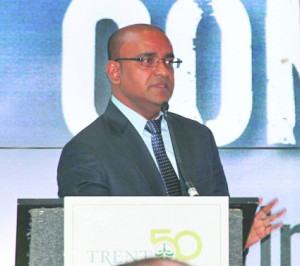Former President Bharrat Jagdeo continued his global campaign to fight climate change, telling a high-level Canadian audience Monday evening that fixing the energy mix, decarbonising sectors and charting a different pathway to development through a new global agreement with incentives and strong regulations, is the way to go. He was at the time one of several panelists at a Trent Centre for Biomaterials Research event titled “The Carbon Conversations: Charting a Sustainable Future”.




